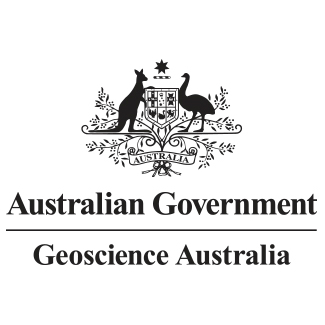Brief description
The dataset provides the spatially continuous data of the seabed gravel content (sediment fraction >2000 µm) expressed as a weight percentage ranging from 0 to 100%, presented in 0.01 decimal degree resolution raster format.The dataset covers the Australian continental EEZ, including seabed surrounding Tasmania. It does not include areas surrounding Macquarie Island, and the Australian Territories of Norfolk Island, Christmas Island, and Cocos (Keeling) Islands or Australia's marine jurisdiction off of the Territory of Heard and McDonald Islands and the Australian Antarctic Territory.
This dataset supersedes previous predictions of sediment gravel content for the Australian Margin with demonstrated improvements in accuracy. Accuracy of predictions varies based on density of underlying data and level of seabed complexity. Artefacts occur in this dataset as a result of insufficient samples in relevant regions. This dataset is intended for use at national and regional scales. The dataset may not be appropriate for use at local scales in areas where sample density is insufficient to detect local variation in sediment properties. To obtain the most accurate interpretation of sediment distribution in these areas, it is recommended that additional samples be collected and interpolations updated.
Lineage
Maintenance and Update Frequency: unknown
Statement: Sediment samples were exported from Geoscience Australia's Marine Sediments database (MARS), an Oracle database developed by Geoscience Australia in line with ANZLIC data standards. A subset of this data was selected for use in predicting spatial distribution of gravel content based on a set of criteria (similar to those reported by Li et al. 2010 and detailed GA record will be available in 2012). Predicting the spatial distribution of gravel content at a 0.01 decimal degree resolution was undertaken by averaging the predictions of random forest, of a combined method of random forest and ordinary kriging and of a combined method of random forest and inverse distance squared (the methods used is similar to that reported by Li et al. 2011 and detailed GA record will be available in 2012). The spatial interpolation method used was experimentally selected from over 40 methods/sub-methods based on assessment of predictive errors. The predictions were then imported to ArcGIS, and ArcGRID and ascii raster files were generated. Final raster files are in Geographic WGS 84 coordinate system with a 0.01 dd spatial resolution. File sizes are approximately is 79 MB (ArcGRID) and 135 MB (ascii) with dimension of 5396 x 3831 cells.
Issued: 2011
text: westlimit=109.2334; southlimit=-47.1982; eastlimit=163.1934; northlimit=-8.8882
Subjects
AU-EEZ |
Earth Sciences |
GIS Dataset |
National |
National dataset |
Published_External |
geoscience |
geoscientificInformation |
mapping |
marine |
marine jurisdiction |
seabed |
sedimentology |
User Contributed Tags
Login to tag this record with meaningful keywords to make it easier to discover
Other Information
Download the file (misc) (File download)
Identifiers
- global : a4c78d63-303f-0e18-e044-00144fdd4fa6
- URI : http://pid.geoscience.gov.au/dataset/ga/71981



